
Comments are available here.
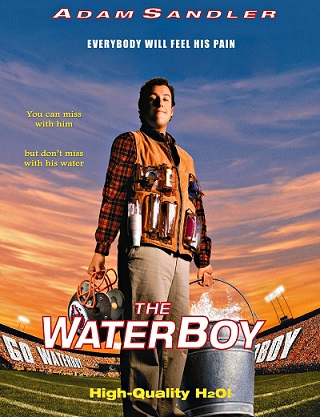
Today, we are going to talk about the importance of water on a very general basis. Instead of just giving a script or set of instructions, I am going to explain some of the science of why water consumption is so important. So much so that Michelle Obama has made it her part of her healthy campaign designated Drink Up.
Keep in mind, I will try my hardest to keep the science as general as possible. It wouldn’t be hard for me to dive deep, but to many the terminology might as well be in gibberish. In doing so, the technicalities may be oversimplified. I could write articles for the whole year about a single aspect of this article. Heck, I have read entire chapters written about just the testing of kidney function. The target audience for this article is meant for those unfamiliar with the science behind the human body. It is meant as my advice and to help give the regular reader a general understanding of the importance of water. This is not a substitution for seeking help from a medical professional. If in doubt, consult your doctor.
The Lungs
Many don’t appreciate the fact that the lungs are exposed to the same external environment as our skin. When our skin becomes exposed to the dry elements, the skin dries and cracks from lack of hydration. Severe dryness will result in skin bleeding through those cracks of damaged skin. To keep our skin healthy, various moisturizers are lathered over damaged areas. Unfortunately, we can’t lather our lungs when they get dried out. This is bad, because the respiratory system wants to be hydrated.
Think of a common kitchen sponge. When hydrated, a person can squeeze it with ease and repeatedly without damaging it. A dry sponge can be easily broken in half. Dry cracking lungs can give the experience of pain radiating from the ribcage. It is a symptom that can easily get dismissed as something else such as a pulled muscle or back-pain. Smokers can actually experience this pain quite frequently due to the dry air being inhaled and the problem is compounded by dry soot.
Dehydration also affects the throat, mucus, and sinuses. Mucus plays multiple roles in the body. One is to help pull contaminants out of the lungs. The other is to keep the respiratory lining hydrated. We all know what happens to mucus when it dries. It becomes crusty boogers in our noses that we pick at and toss at our co-workers. When mucus dehydrates in the throat, it can irritate the larynx and vocal cords. Just imagine dry crusty boogers scrapping their way up from the bottom of your lungs up to your nose.
I’ve experienced this first hand. Once upon a time, I was constantly cursed with a sore throat. I went to the doctor and the default diagnosis was acid reflux. I took medicine and changed some habits to no avail. It finely occurred to me that I was drinking hardly any fluids during my work-day. The sore throat was probably made worse by the dry environment I had worked in. I started drinking water routinely. Presto, my sore throat went away and has been gone for as long my water intake has been adequate.
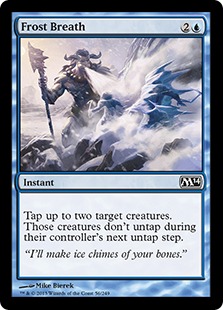
Why is this important to you?
Convention centers are notoriously dry. There are many reasons centers drop the humidity gauge. That many hours or days exposed to very dry air can irritate the throat. One might conclude after a tournament that they have caught some dreaded Grand Prix plague, but it usually takes days for actual symptoms to appear from any kind of virus. When the CDC investigates a massive outbreak, it takes investigation because people don’t experience symptoms until they go home. More than likely, that sore throat is actually from dehydration. If you start getting a tickle in your throat, drink up.
The other simple fact is proper hydration can improve oxygen absorption. It is common for paramedics to humidify the oxygen when administering it. One, it is much more comfortable on the throat since there is no water in that oxygen tank. Two, it helps maximize oxygenation of the patient. To maximize hydration of the air going into your lungs, hydrate and breathe through your nose. If your mama told you to shut your mouth, she was a smart lady. More than likely, she was just trying to follow proper etiquette. However, that is why your nose is there. It hydrates your air supply. It also helps to keep you from looking like an idiot and saving your opponent from your bad breath.
Alcohol and Lung Function
Since some players partake in the consumption of alcohol before the tournament, it is important to know a few things in regards to alcohol and lung function. There are many mechanisms that control our breathing, with oxygen/carbon dioxide levels just being one aspect. A mechanism many don’t know about is pH, or the acidity of the blood. When carbon dioxide is in the blood, it forms carbonic acid. The formation of this acid lowers the pH (making blood more acidic). Part of the brain monitors pH and stimulates breathing. Alcohol affects this mechanism because it is actually an acid. More alcohol equals more acidic blood, and more acidic blood increases the respiratory rate. Ever see the drunkard breathing really heavy or labored? The increased acidity is why.
It should be noted this is one of the main reasons why people die from alcohol poisoning. Eventually, the blood gets so acidic that the system gets overridden. An intoxicated person who has a lack or shortness of breathing should get medical attention immediately. A drunk person should be breathing heavily; lack of proper respiration means they are heading down a very dangerous path. They have reached the tipping point and the problem will more than likely only get worse as alcohol continues to seep into their system. Seek help and medical attention immediately. At the very worst, you will have a ticked off friend. The alternative is having a dead one.
Kidneys
From my experience, most people don’t “really” understand how the kidneys function. Most people know the kidneys filter the blood. Well, that is partly correct. The first thing that happens when blood enters the kidney is that it passes through something called the glomerulus. Inside are small blood vessels, called capillaries, with pores that basically leak blood plasma (essentially the liquid portion of blood). Now, these pores are so small that things like blood cells, platelets, and large proteins are too big to pass through. Anything smaller enters the kidney. The organ doesn’t discriminate. If it is too big, it passes right on by and reenters the body. If it is small enough, it continues on through the kidney.
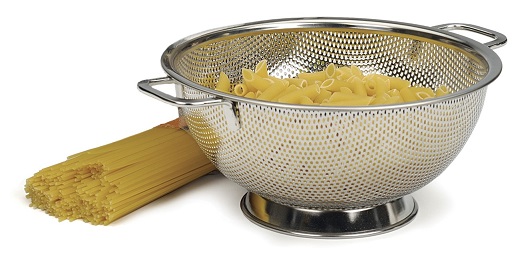
One of the kidney’s jobs is to reabsorb the stuff that we want to keep. If it weren’t, a large amount of nutrients, electrolytes and water would drain right out into the bladder. I like to think of the kidney as a large recycling/waste center. At these centers, garbage gets dumped onto a large conveyor belt. As the garbage moves down the belt, important/valuable recyclables such as glass, aluminum, and other metals are pulled out of the garbage. The rest of the garbage is sent to the landfill. Essentially, this is how the kidney functions. As the plasma travels through the kidney, the kidney pulls back in stuff like water, electrolytes, amino acids, glucose and etc. Anything that doesn’t get reabsorbed by the kidney heads straight to the bladder. This is also how the kidney helps keep balance/homeostasis in the body. If the body has a high concentration of salts, the kidney doesn’t reabsorb them. The kidney helps balance a person’s blood pH (acidity) in a similar way.
The purpose for urine is to rid the body of metabolic waste. The human body is continuously producing waste such as urea and ammonia. Without the kidneys, people basically die of toxins accumulating within the body. Yes, today we have dialysis machines for those able to afford it (dialysis is very, very expensive). However, these machines are far from perfect. Proteins and other stuff are lost that the body has to replenish. It requires a person to commit to four hours of the day on a machine. There is also the real risk of infection. Ask a person doing dialysis three times a week and they will tell you that they have only one good day in a week. Usually, that day is Sunday. Monday is dialysis at the hospital all day. Tuesday, they are exhausted from dialysis as their body recovers. Wednesday is dialysis. Thursday, tired. Friday dialysis. Saturday, tired. Sunday is their one good day.
The truth is, damage can be done to the kidneys quite easily. Not drinking enough water can do it. I remember reading a case study a couple of years ago of men in their twenties dying of kidney failure. It was in some third world country. These men were required to work twelve hour days, in the sun and heat and without any water or breaks. The result: massive kidney failure. The reason is that the kidneys get burnt out. Just like muscles, the kidneys can get overworked. When a person consumes too little water, the kidneys have to work very, very hard to reabsorb water and the important stuff. We can commonly see the same thing to an extent in the U.S. in truckers. It is typical for many truckers to abstain from water consumption so they don’t have to stop for five minutes to urinate. Because of this, many truckers tend to have some kind of kidney damage later during their lifetime.
Lack of water equals kidney damage. Too much water can also be a bad thing. Every so often, a patient will come into the emergency room from drinking too much water. Go back to the recycling center analogy where we pick out the recyclables. Now, speed up the conveyor really, really fast, to the point that recyclables are getting missed and going to the landfill. This is what happens when people drink too much water. With all that water rushing through, the kidneys are unable to absorb all those electrolytes. In turn, a shortage of electrolytes can result in seizures or cardiac arrest. Muscles, including the heart, and nerves need electrolytes to function properly. Without electrolytes, the nerves that keeps the heart firing can falter. Brain function is equally susceptible to damage.
Should you be afraid of drinking water? No. Excessive amounts of water are rare. Sometimes marathon runners run into a problem with electrolytes, but that is because of sweating. The salts are lost in sweat. The emergency room visits are typically from someone trying to fudge a drug test. The victim consumes gallons of water to purge whatever drug they are trying to mask, and end up purging their electrolytes at the same time. This is very dangerous and stupid. Places that test for drugs in urine also test for this. One way is to test the specific gravity of urine - un a sense, the density of the urine is tested. Watered down urine will have a whacked out specific gravity. There are multiple other ways to test the urine. All I am saying is that drug testing facilities test for things like watered down urine. Drinking lots of water will not help pass a drug test and only risk severe harm or death.
A person with a healthy diet usually gets plenty of electrolytes in the food consumed. Therefore, a person eating a well-balanced diet and drinking the recommended eight (8 ounce) glasses of water a day has nothing to fear. The problem with most American meals is they have massive amounts of salts. Too much salt can be a bad thing, and drinking more water is not the solution. Think of a pot of soup. Add a cup of salt. Now, the soup is way, way too salty. It is now like licking a block of salt. A possible solution is to add a ton of water. If we do that, we have not only diluted the flavor of the soup, we now have a ton of soup. If we have a big, big pot, this is possible. Unfortunately, the human body doesn’t have extra space to expand like that. The human body is a closed system. This contributes to high blood pressure, and is also why your grandma’s doctor is telling her to say away from the salt shaker. Remember, the kidney is only trying to maintain a certain concentration of electrolytes. It does not know that there is too much in the body (not directly, anyway). The kidney will continue to take up water and electrolytes to maintain homeostasis, or in other words an equilibrium.
High blood pressure is also called hypertension. It can cause many problems, but we will focus on the kidneys. Like I said, that fluid has no place to go and causes pressure. It may attribute to a bloated feeling as water is stuffed into the human body. This hypertension can damage the capillaries. The kidneys have lots and lots of capillaries that pull in those recyclables. When these capillaries get damaged, the kidney gets damaged, and it stops eliminating waste as well as its other functions. This leads to a person retaining more fluid. More fluid results in higher blood pressure, which results in more kidney damage. It is a vicious cycle.
Why is this important to you?
As a player attending a big tournament, the best thing is to be conscious of the amount of salt that you are consuming. I realize this can be hard. Most fast food and food-stands at those events are serving food that is littered with salt. If possible, try picking healthier venues and options. Since this may be nearly impossible, my suggestion is to bring along or pack food that won’t spoil. Fruit like apples or bananas are always good options. My personal favorite is graham crackers, but I suggest being creative. If one tries, it isn’t too hard to find snacks or other alternatives. The best thing about packing food/snacks is that sometimes there isn’t a whole lot of time between rounds. However, there is enough time to quick pull out an apple for a quick bite. This not only keeps you healthy, but keeps up your energy level as well.
For Pete's sake, stop for five minutes to go to the bathroom. I realize many players travel many, many miles to tournaments. It is human nature to abstain from liquids on those journeys. However, it does a number on your health. Damage can be done to the kidneys, and less toxins get expelled from the body. Toxins don’t make you feel good. Feeling crappy makes you play crappy. Drink up on that drive or plane ride and you will arrive at your destination feeling much better.
Digestion
Water is especially important to digestion for many reasons. An overseen facet is that water helps move food through the digestive system. Well-hydrated food moves through our digestive system with ease. A dehydrated person will have a more difficult time moving food through about twenty-four feet of small intestine and five feet of large intestine. What could go wrong?
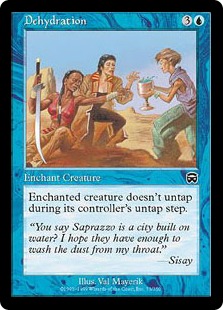
In extreme cases, bloating can cause death. It rarely happens. However, it is much more common with livestock. The animals most at risk are the big methane producers like cattle. I grew up on a dairy farm and can attest to the fact that it does happen. We lost more than one to bloating. How did this happen? Well, sometimes a cow can lie down in an awkward position that makes it difficult to get back up. As the animal lies there, it bloats as it lies on its side. When the animal finally decides to get up, it can't to since it has rounded out due to bloating. The best way to think of it is a turtle on its back. The cow is still unable to get up and move around. This causes bloating to continue until the point of internal hemorrhaging. Eventually, the animal expires. This incident can happen in a day; not weeks or days.
Why is this important to you?
This may all seem silly until a person tilts due to stomach troubles. Not to mention, you may feel like utter &@%% after the tournament. To avoid this, try moving as much as possible. Travel to large tournaments usually entails a lot of sitting, a fact only exacerbated by the large amount of time sitting at those tournaments. Got time between rounds? Get up and walk around a bit. Any little bit helps. Heck, even stretching here and there can be a very good thing. None of this does much good if one is restricting the amount of water being consumed. Those bricks aren’t moving much during that walk if you're dehydrated. The human tendency is to skip water on that long car ride or during that long tournament. Don’t. It is only to your benefit to keep hydrated and moving.
Puking and Diarrhea
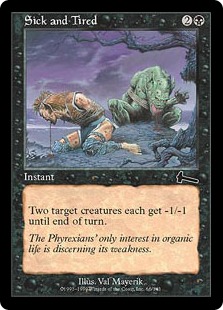
For the sake of completeness, what about diarrhea? (Man, I love writing that.) It is not too hard for many to understand we lose a lot of fluids due to diarrhea. What gets a lot of people in trouble is that we actually lose a lot of electrolytes in the process. People get diarrhea and drink a lot of water, but fail to replenish the salt needed to make us function. (As a side note, they actually mix sea salt with three parts water in third world countries to manage cholera. Ah, death by diarrhea.) Anyway, a sports drink may be a good way to recover from that suspicious hot dog you ate at that questionable gas station. In the case of diarrhea, a person should avoid all dairy products. If one wishes, vegetable broth may be substituted for a sports drink. I mention all of this because I know it happens. I’ve even read an article or two from a pro or two commenting about digestive problems during their trip. Sometimes it is self-induced. Sometimes, it is a bad hot dog.
Tournament Day
It is morning time. The body has lost a lot of water from sweating, breathing, and kidney function. A person is probably the most dehydrated during those early morning hours. If there was a time to chug a bottle of water, it is right after we wake up. Get up, do those bodily functions we all need to do, and drink some water. Don’t take that vitamin just yet. Many vitamins are fat soluble and will only enter the body if consumed with food. Not to mention, it can be hard on the stomach. Take that vitamin after putting some food in the system.
For the rest of the day, the optimal water intake would be to that eight or so bottles of water (or however much is best for you) throughout the day. Sipping on that bottle is a good thing unless you do want to make a lot more bathroom breaks. Remember, the kidney wants to maintain a certain level of hydration. If a person surpasses that level by consuming a whole day of water in one sitting, yes, the kidney is going to dump water like mad and possibly miss some important recyclables. Spread out your water intake except for meals. Food brings in a fresh supply of electrolytes, carbs and nutrients that will dehydrate the body, tipping the water versus electrolytes ratio. Therefore, try drinking water during a meal or with the consumption of food. Not only that, it will keep the food lubricated for easy passage and enhance nutrient uptake.
I wish I could give out an exact formula for water intake. I can’t, because everyone is different and their experiences are unique. The smokers and chatterboxes will need more water than the person who barely speaks a word. The immovable statue will need less than the judges running laps around the tournament room. Some people will start the day more hydrated than others. I could go on and on about the differences.
The important thing is balance and listening to one’s body. The human tendency is to ignore what our body is telling us. Listen, and be conscious of what is going into your body. Remember, humans often do the most damage to their own health. We don’t exercise, eat too much salt, forget to drink water, and etc. Much of healthcare is treating preventable diseases or problems. Basically, what I’m trying to say as politely as possible is that much of the high cost of healthcare is attributed to human negligence. The important thing to remember is that much of your health is in your hands. You can be healthy. One step towards better health is maintaining a healthy intake of water.
Here is to good health,
Meyou
Comments